|
The Justice Department today filed a complaint challenging Tennessee Senate Bill 1 (SB 1), a recently enacted law that denies necessary medical care to youth based solely on who they are. The complaint alleges that SB 1’s ban on providing certain medically necessary care to transgender minors violates the Fourteenth Amendment’s Equal Protection Clause. The department is also asking the court to issue an immediate order to prevent the law from going into effect on July 1, 2023.
SB 1 makes it unlawful to provide or offer to provide certain types of medical care for transgender minors with diagnosed gender dysphoria. SB 1’s blanket ban prohibits potential treatment options that have been recommended by major medical associations for consideration in limited circumstances in accordance with established and comprehensive guidelines and standards of care. By denying only transgender youth access to these forms of medically necessary care while allowing non-transgender minors access to the same or similar procedures, SB 1 discriminates against transgender youth. The department’s complaint alleges that SB 1 violates the Equal Protection Clause by discriminating on the basis of both sex and transgender status. Doctors, parents and anyone else who provides or offers to provide the prohibited care faces the possibility of civil suits for 30 years and other sanctions. “No person should be denied access to necessary medical care just because of their transgender status,” said Assistant Attorney General Kristen Clarke of the Justice Department’s Civil Rights Division. “The right to consider your health and medically-approved treatment options with your family and doctors is a right that everyone should have, including transgender children, who are especially vulnerable to serious risks of depression, anxiety and suicide. The Civil Rights Division of the Justice Department will continue to aggressively challenge all forms of discrimination and unlawful barriers faced by the LGBTQI+ community.” “SB1 violates the constitutional rights of some of Tennessee’s most vulnerable citizens,” said U.S. Attorney Henry Leventis for the Middle District of Tennessee. “Left unchallenged, it would prohibit transgender children from receiving health care that their medical providers and their parents have determined to be medically necessary. In doing so, the law seeks to substitute the judgment of trained medical professionals and parents with that of elected officials and codifies discrimination against children who already face far too many obstacles.” Today’s filings are the latest action by the Justice Department to combat LGBTQI+ discrimination, including unlawful restrictions on medical care for transgender youth. On March 31, 2022, Assistant Attorney General Clarke issued a letter to all state attorneys general reminding them of federal constitutional and statutory provisions that protect transgender youth against discrimination. On April 29, 2022, the Justice Department intervened in a lawsuit challenging a law in Alabama (Senate Bill 184) that imposes a felony ban on medically necessary care for transgender minors. As a result of that litigation, the most significant provisions of Alabama’s Senate Bill 184 have been preliminarily halted from going into effect, and the United States continues to challenge its constitutionality. Additional information about the Civil Rights Division’s work to uphold and protect the civil and constitutional rights of LGBTQI+ individuals is available on its website at www.justice.gov/crt/lgbtqi-working-group. Complaints about discriminatory practices may be reported to the Civil Rights Division through its internet reporting portal at civilrights.justice.gov.
0 Comments
PEEKSHOW features the mind blowing stop-motion short films of renowned performance artist Peekaboo Pointe, an interdisciplinary artist with an MFA in Performance and Interactive Media Art from Brooklyn College and a BFA in Dance from George Mason University (NYC). Her films are melancholy and campy, taking head-on issues such as the aging female body and what it means to be a performing artist in a digital age, as well as her own personal struggles with fertility. As a queer film maker and performing artist, Peekaboo Pointe’s work celebrates the unveiled female form as a site of agency and subjecthood.
PEEKSHOW also includes a talk-back between the artist Peekaboo Pointe and scholar Dr. Lynn Sally, author of Neo-Burlesque: Striptease as Transformation, as well as an add-on intimate theatre experience at some venues. SCREENINGS: 2/20/23: PEEKSHOW @ El Cortez Theater, T or C, 7:30 pm. $10 Suggested Donation at Door 2/21/23: PEEKSHOW @ University Art Museum at NMSU, Las Cruces, 6 pm. FREE 2/25/23: PEEKSHOW @ Jean Cocteau Cinema, Sante Fe, TIX $20-$35 PERFORMANCES: 2/18/23: Dr. Lucky’s Blue Revue @ Hotel Andaluz, ABQ, 8 pm. TIX $20-$35 2/19/23: Zircus Erotique @ Jean Cocteau Cinema, Sante Fe, 7:30 pm. TIX $25-$35 For more information visit www.lynnsally.com. Each year Valentine’s Day encourages a whole season of love, whatever that means in American culture. At least it means that the new year begins with stores overflowing with candy, flowers, cards, stuffed animals, jewelry, and other paraphernalia needed to show how buying proves we’re in love.
Valentine’s Day is a patterned American written and oral exam testing whether you really do love someone, and whether you’re really loved by someone. If they truly love you, they’ll show it through the Day’s products. It’s not all bad. If it is a reminder to take the time in a busy life to express love, how can that in itself hurt? Yes, yes, someone shouldn’t need a special day to do this, but the commercialism that defines the Day also highlights feelings of how seldom we get the space to lavishly celebrate love. The problem is that instead of celebrating love between two people just as they are as human beings, the Day is more a celebration of culturally defined patterns that are not only meant to sell products and services but to define for us how and what love should be. Confusing? Yes. There are even religious people who claim that the Model of perfect love in the universe includes allowing the children whom this Divine Model is supposed to love to suffer eternal child abuse, lovingly teaching that his children actually deserve the most despicable and endless suffering this Model can come up with unless they follow some formula the religion prescribes to save them from it. All along, their claim preaches that that should be seen as real love. As a part of all our culture’s confusion, a lot of other words that could relate to love have been usurped by our society to instead mean sex, because sex sells even better than patterned love. We’d expect that - we’re a society that’s very sick about both. For example, we use words that do not mean sex but could designate more, to mean sex: Are you two intimate? Have you slept together? Are you two close? Have you made love? Are you two lovers? What do you think of polyamory? All societies fall when they practice immorality? Did you hear that she lost her virtue? Though none of the above words means sex, we’ve been conditioned to spontaneously take them to refer to it. And that too reflects this cultural confusion over sex as well as love, intimacy, closeness, immorality, and virtue. Then in our confused discussions of “love,” we talk about different kinds of it. One’s love for one’s children “is not the same” as one’s love for one’s lover or one’s love for one’s pet or country as if we are clear about what the nature of love is and as if we are not talking about whether or not we are having sex with someone or something. It was actually among a bunch of progressive theologians years ago before the Supreme Court allowed marriage equality that I suggested that the government should have no business telling an adult who or what they can or cannot love. “Oh,” the response came back, “then it would be okay for someone to fall in love with their horse.” I frankly don’t care whether someone loves their pets, but that response expressed the problem. They had assumed that “love” equaled performing a sexual act. And imagine if we actually spoke of someone “sleeping with their horse” as cowpokes did in the old West why someone would jump to the conclusion that that meant sexual activity was involved? Yet, that’s the kind of leaps we make when we haven’t reconciled ourselves either to love or sex culturally. Sometimes that’s done for the best of reasons and sometimes not. In the Hebrew Scriptures, David and Jonathan have a close, intimate, same-sex relationship. It even involves a same-sex covenant between them. And when Jonathan dies, David publicly mourns, saying: “Oh, Jonathan, my love for you was more wonderful than for women.” Now, there’s nothing in all that that clarifies that their close same-sex friendship involved sexual activity. The fact is, we just don’t know either way. And in a less homophobic culture than ours, such same-sex friendships were almost expected and could have involved sexual activity to express them. But to argue either that they must have been sexual or that they couldn’t have been sexual, as people also do over the same-sex love of Ruth and Naomi, represents a confusion about intimacy and sex that was depicted in another form in the 1989 classic romantic comedy When Harry Met Sally. Harry’s thoroughly culturally patterned claim was that a man and woman can’t have a close friendship without sexual activity being involved. And the film concluded that Harry was right. But was he? Or is this just the confusion of being brought up in a culture that says sex is the means to express close, intimate love. If that is so, then Will could not have loved Grace in that old TV series. Then we will not be able to understand the intimate bonds that can exist between a gay man and a heterosexual woman (who we might even demean with the words “fag hag” and all that that connotes), or between a lesbian and a gay man. If love is really understood as an unconditional relationship, then sex cannot be made necessary for it. That would add a condition, just as any statement such as “If you love me, then…” indicates that there are really conditions and expectations attached to what we are calling love. If love is a commitment to the best of another, and a decision to stand by and with that other in life, then that love is as true for a father and his son, a mother and her daughter, friends, or any other mutually agreed upon human relationship. But, even more, unconditional love cannot have as a condition the requirement that the other will love one back. And that’s an emotionally difficult idea to live while protecting oneself, deciding what such a relationship will look like, and setting one’s own boundaries. And how that love is expressed will differ in any loving relationship for that very reason. Sex, then, can become one of the ways to express love that does so if mutually agreed upon. But it can also be a means of communicating something else for better or worse. But, let’s remember that there are hundreds of other ways to express love, closeness, and intimacy. And all of them are choices human beings can make. And to do so, we need to address the hang-ups we’ve been conditioned to attach to both words, hang-ups that are often taken out on those who don’t love the way or the people we think they should. --- Robert N. Minor, Ph.D., Professor Emeritus of Religious Studies at the University of Kansas, is author of When Religion Is an Addiction; Scared Straight: Why It’s So Hard to Accept Gay People and Why It’s So Hard to Be Human and Gay & Healthy in a Sick Society. Contact him at www.FairnessProject.org. It was another deadly mass shooting in Colorado at an LGBTQ nightclub on another American day that will live in infamy as did the shooting six years ago at an Orlando LGBTQ nightclub killing 49. This time, five human beings were murdered and more than two dozen injured before patrons subdued the attacker. (LGBTQ people have learned from generations of experience that they can’t often count on the police for protection.)
But, the responsibility for this and all the other violence against LGBTQ people falls at the feet of every right-wing religious and political leader who has publicly spoken out in their nationally orchestrated campaign to demonize, dehumanize, and threaten LGBTQ people with punishment in this life and the next. Words matter, and words spoken publicly echo and reecho in the hearts and minds of those who will act on them. They often even produce the kind of self-hate LGBTQ people internalize so they come to despise who they are and those who remind them of it. And of all people, right-wing preachers and televangelists who spend their time minutely parsing every word in their Bibles because what they want it to say is so important in justifying their prejudices, know what the impact of their words is. They’re responsible for their speech and for those who act upon them. I’m not just talking about those who get media attention by literally calling for the return of executions of LGBTQ people. That’s just the most obviously extreme rhetoric of a last prejudice our society allows to be spoken out loud without consequences. I’m talking about every one of those religion-pushers who has used LGBTQ people to further their agendas, their power, their leadership, and their attention-getting needs. I’m talking about every pusher of addictive religion who has closed their minds and hearts to alternative understandings of their scriptures and traditions, in order to cover up their personal issues around sexuality and their sexual addictions. I’m talking about every religion leader who finds that LGBTQ people are great scapegoats to hold the attention and pocketbooks of congregants, TV viewers, radio listeners, and the gaggle of gullible enablers who host them in the mainstream media. And that includes everyone who joined the party of demonizing the entertainment called “drag” as if it’s a problem for our children. I’m talking about every right-wing politician, and even others who consider themselves more liberal, who must not speak out against anti-LGBTQ violence because of their absolute terror of losing their funding, power, and positions, who refuse to be leaders in equality because that will come at a personal cost. I’m talking about those who counsel that now is not the time to enact further LGBTQ protections, or any gun control, while more people die. I’m talking about other religious leaders who won’t lead their institutions to take a public stand for the affirmation of LGBTQ people with all kinds of fear-based excuses: “We don’t want to be known as a gay church.” “We accept everyone, but do we need to mention it?” “We don’t want to divide the Church (because church unity is more important than the lives of LGBTQ people).” “We need to study this subject more because there are many in our congregation who have other views (and still can’t stand LGBTQ people).” I’m talking about religious and political leaders who won’t take a public stand against the violence LGBTQ people still experience regularly in our culture often while the perpetrators are shouting things they’ve heard from American pulpits. They’re the one’s who’ll usually deny in some back-handed, non-public way that they condone the violence, but are too afraid to preach, march in a parade, or attend a rally to openly say so. I’m talking about every right-wing pundit, blogger, and politician who wants to turn what was intentionally an attack on an LGBTQ club into something that merely blames mental illness as if mentally ill people are expected to do these kinds of things, to prematurely bury the LGBTQ human victims of the attack under their need to scapegoat mental illness instead of the homophobic bigotry they condone daily. I’m talking about all those right-wing leaders who suddenly are acting as if they care about LGBTQ victims in spite of the fact that for generations right-wing Christians have been brutalizing LGBTQ people without a peep from these same religio-political leaders. I’m talking about those all over the internet who are looking for every loophole, every subtle nuance, every syllable, and every questionable moral argument to condone or even applaud what happened as if it’s God’s will. All of you are personally responsible even though many people will claim outrage and refuse to say so. My liberal friends might shy away from me on this because they don’t want to believe that the above is true or because their hope is still that those I’m holding responsible are going to change if, like abused spouses, we’re just nicer to them, more understanding, and more forgiving. Forgiveness is something, however, to be given only to those who believe they need it and ask for it. Forgiveness of those who don’t want it is hubris. And if I’m wrong, then there are things that those whom I’m holding responsible can do to prove it. These are actions, not just pretty words, that will show the rest of us that you don’t condone violence against LGBTQ people. Otherwise you’re just a self-justifier. (1) Make sure that your local, state, and federal laws include LGBTQ people in hate crime protections. Hate crimes are not just individual crimes; they’re directed at someone because that someone is a member of a whole group the perpetrator wants to terrorize. (2) Take a public stand against violence toward LGBTQ people as human beings and citizens in this country. Even if you can’t stand LGBTQ people, let everyone you interact with know that you are against the brutalization and dehumanization of them. (3) Face your own issues about sex and sexual orientation. Get therapy. Attend a support group. Ask yourself why this is the issue you want to be known for, and not poverty, homelessness, or hunger. (4) Stop condemning as heretical other ways of understanding your religious texts and traditions than the anti-LGBTQ one’s you cling to for some personal reason. These alternatives proposed by also very sincere believers are all out there in the public discussion and have been for over half a century. (5) Face your and your religious organization’s fears about public support for ending crimes against LGBTQ people and of what other people will think of you. Fear is spiritually debilitating, and facing those fears is a matter of your own spiritual growth not just an action that will benefit others. (6) And repent for all you’ve said or done that’s regularly cited to kill LGBTQ people. OR seek for other self-justifications to keep doing so. Robert N. Minor, Ph.D., Professor Emeritus of Religious Studies at the University of Kansas, is author of When Religion Is an Addiction; Scared Straight: Why It’s So Hard to Accept Gay People and Why It’s So Hard to Be Human and Gay & Healthy in a Sick Society. Contact him at www.FairnessProject.org. The United States Holocaust Memorial Museum issues statement of outrage about the Club Q Shooting11/25/2022 The United States Holocaust Memorial Museum is outraged at the shooting at Club Q in Colorado Springs that took the lives of five people, injured 19 others, and has reverberated across the LGBTQ community and beyond. The Museum expresses its condolences to the many families and friends who lost loved ones in this horrific act. Prosecutors are pursuing hate crime charges as the suspect’s motives are still being investigated. This tragic event occurs in a climate of increased group-targeted violence.
While the US is vastly different than Nazi Germany, history offers important lessons about group-targeted violence. During the Holocaust, hate started with the Jews, but did not end with the Jews. Jews were the primary targets of the Nazis, but other groups were also persecuted, including gay men. Beginning in 1933, the Nazi regime harassed and dismantled Germany’s gay communities. They arrested large numbers of gay men under Paragraph 175, the statute of the German criminal code that banned sexual relations between men. Some 50,000 were sent to prison and between 5,000 and 15,000 were incarcerated in concentration camps where many died. A nonpartisan, federal educational institution, the United States Holocaust Memorial Museum is America’s national memorial to the victims of the Holocaust dedicated to ensuring the permanence of Holocaust memory, understanding, and relevance. Through the power of Holocaust history, the Museum challenges leaders and individuals worldwide to think critically about their role in society and to confront antisemitism and other forms of hate, prevent genocide, and promote human dignity. Sexuality can be a superpower. With the world making it something to be shameful about, creators of Baloney, Michael Phillis and Rory Davis, thought it was about time to make it a celebration on stage. Baloney, the documentary, allows viewers to see inside San Francisco's first and only gay all-male revue. They explore what male sexuality means. It is an in-depth look at body and gender diversity and sexuality, in all forms, through sex-positive performances.
The film follows Phillis, giving up his 9 to 5 lifestyle to live out his creative dreams and develop Baloney with his partner and choreographer, Rory Davis. As he puts it, "I'm living my dreams, but I eat a lot of peanut butter and jelly sandwiches." The directors and cast allow a look into their personal lives, what the show means to them, and their experiences growing up in the gay community. It is an a-ha moment in the film when Phillis discovers until he embraces and incorporates that he is a sexual, gay male, the stories and experiences cannot come to life. Everyone sees the vision, showing their commitment to the big picture. It's moving. The ideas behind the dance numbers and the lessons learned are inspiring. The shows are thought-provoking, and while some of the content is like a car accident, you can't look away. But that's the point. America's shame of the human body and society's need to hide it damages younger generations and adults trying to find themselves. Baloney is an escape to explore and feel safe without judgment or ridicule. Everyone is equal, and every fantasy is fulfilled. Baloney makes you think. In this time of suppressing creative materials deemed offensive, this documentary could end up on this list. So, I encourage everyone to say fuck that and break the status quo. Show this film to those who have expressed not knowing who they are or have a fear of what they enjoy. Joe Andrews said it best, "Once you're in that dark place in getting to know all aspects of yourself, you discover that your sexuality can be powerful. We are not shying away. We're all about the smut in Baloney, that's what you came for. That’s what we’re going to give you. But we're also going to make you think." Baloney makes you do just that - it may also want to make you start an all-male gay revue in your town, but one step at a time. Baloney is streaming now across North America and is available on a number of digital and cable platforms, including iTunes, Amazon Video, Vudu, Spectrum, and inDemand. - Teresa Robinson This article was supposed to run in the 2021 issue of PRIDE & Equality magazine. With the still unpredictable environment, we made the decision not to publish. So, I will share my thoughts from a year ago, as they still resonate now.
It’s 7:08 in the evening. I’m jotting down my thoughts for the Publisher’s section. I find myself contemplating if there is still a need for this publication. When the magazine was just a thought, I was 19 and freer than I have been. I reminisce about spending nights with my best friends at local nightclubs and dancing the night away without a care in the world. I met some of the most outrageous people through those clubs. Some I still know, care for, and love very deeply. I also remember questioning why my church leaders continued to tell me that the people I love would burn in hellfire for being who they were. I never understood people’s hate for individuals I admired for being so open and fearless. They were brave enough to be themselves, regardless of what society told them. I felt we needed more of that in this world. We needed more people who inspire us to say “fuck you” to those who try to make us small and quiet. That was my inspiration for starting PRIDE & Equality. I wanted to show the community in that beautiful light. I wanted to show the beauty of humanity in a group that created a family when they had none. There were many challenges in the beginning, even still today. Those who wanted to be apart thought more about the financial gain than the mission. Hard work isn’t for everyone. But it didn’t matter. I knew what was ahead, and it was too important to give up. Eighteen years later, after the closing of bars, gyms, bookstores, and centers, P&E is still here. But I still sit here and ask, “is it needed?” Then, Bunnie Cruse ran for House District 28. Bunnie has been a friend, a sister, and a resource before the birth of this publication. She knew me before I became a mother. I know her past, and I couldn’t be prouder of her as she decided to run for office. Because I knew there was a trans youth watching her do this and saying to themselves, “I can do that.” It was why she is a Model of Hope. I had to fight to explain that choice, too. In the end, she persisted. She is a pure definition of why I started the magazine. While contemplating my decision, I watched the latest episode of the mini-series “Pride” and learned about Nelson Sullivan. A gay man who videotaped his life and his friends in the early eighties until the day he died in 1989. Over 1100 hours of footage captured the humanity of the LGBTQIA community, which produced a YouTube channel where anyone can view the history. The series was beautiful and passionate. It was my mission. PRIDE & Equality has produced many stories and points of view over the years. It has contributed to making a difference in many people’s lives. It’s not about me - it’s about the mission. The magazine is giving the community a voice. I will continue the mission. Teresa Maria Robinson Publisher/Editor-in-Chief PRIDE & Equality Magazine When representation is lacking, you take matters into your own hands. In 1972, Crystal and Lottie LaBeija had tired of the racially oppressive environment the drag pageant system of the 60s had created. In response, the two built The House of LaBeija, birthing the house culture of the ballroom scene. This house continues the legacy of making space for POC youth in the community and uplifting the women that carry on the name. That mission is being expressed in the new short film, “The House of LaBeija” by Director Fregdy Noël. The film will premiere at the Tribeca Film Festival in June. Noël shared how the idea came together and the environment of the production process.
"I'm lucky to have a relationship with the father of the house, Marcus. He knew I wanted to do - some artistic work with the house. So when he said they were ready. I was like, wait, am I ready?", shared Noël. "I started thinking - there was this idea of being at home, and I just thought, what does that good home feel like? There's struggle there, but there is also beautiful joy. When I look at the House of LaBeija, I see that community. I see that support. I saw that love and wanted to bring it back to the house. As an artist, I'm like - this is a mansion - let's place it there. Let's talk about that. Not in the “talking head” kind of way. Let's tell a story that's poetic. Let's look into our past - think about what home was like when we were children and what it is like now. I wanted to connect with them on that. Just seeing all the different letters that they wrote was just so beautiful. I didn't want to make a film that was performative. I wanted it to be intimate. I wanted you to see them as human beings with stories, with range, all of it. The only way to get that is when - they write their own words, and it just went on from there. It was a day of connection, fun, and collaboration because everybody worked together to make this what it is." The collaboration consisted of house members Jasmine Rice, Jeffrey, Bougie, Diovanna, and Housemother Samil. They got an opportunity to look at how they each got here while sharing inspirational words about their journey. The story of ballroom and houses is a new concept for some youth, only coming to life with shows like Pose and Legendary, so there truly is an education behind the film. Bougie was not surprised the film was nominated, but it was a shock to be a part of such a prestigious event, "I have never pictured myself in something as big as this," shared Bougie. “The people who know why I came to New York know that I was here to do some modeling and didn't see anything else behind that. But since I joined this house, I've had more depth to myself. Being in this short film and being featured at the Tribeca Film Festival is something I could not imagine." For Jeffrey, the experience is storytelling - letting people of color share their stories and own their content. "When it comes to the safe places that we provide, and when it comes to chosen families, it comes back down to the content," shared Jeffrey. "I just think it's very important for people of color to own their intellectual property. House of LaBeija is the first house to have seven chapters trademarked, and I'm proud of that. It will be left to this house to do the right thing - to tell their stories as people of color and to have a seat at the table when it comes to creating content, instead of someone coming in and telling our stories. I feel like that is my legacy. Then I feel the universe brought Fredgy to us and gave us this wonderful opportunity. For you to take a look in the looking glass of how we are empowering people who look like us - to tell your older self you're going to be okay. We are living proof that we are going to be okay." He is also excited to see how the ladies will light up the red carpet in their outfits. “That's what ballroom is about. It's about a fantasy - one night of looking over the top, but we're going to be 'in the reality'. I'm just so humbled that I'm getting an opportunity to be who I say I am. I'm just over the roof with all of it.” Samil saw this moment as an opportunity to open up about topics she kept close to the chest. "It was a lot because I did not think I would be voicing my opinions and how I felt and speaking about growing up - going through a divorce with my parents, and turning to alcohol as a source of relief for over six years. I don't talk about that as much as I should because it should be something that would help my house members. Alcohol is an addiction. The same goes for drugs, so expressing how I felt with that - becoming independent at 17 and just making it on my own ever since. Then, going into the medical field, having to deal with HIV-positive patients, being the one who would do the testing, letting them know whether they were positive or negative. I never talk about these things, but it is the perfect time for me to express what I've been through and all my service within the community. I'm proud of it. Now it's time for me to speak on it and have gratitude for everything I've been through. I'm very thankful.” Diovanna, the youngest of the bunch, looked to the 'voice' of the film. Touching on the fact that many do not know the people projected on-screen - how they sound and feel. This film allows audiences to experience it. "One of the most powerful things, even watching it back, was hearing our voices read the letters. I remember the day of - it is a very intimate and vulnerable moment when you have to like to record your writing and hear it back and hear your voice and what that sounds. Not coming out of your mouth, but like coming back at you,” says Diovanna. “I think for ballroom so often we see videos of ballroom people where they're not talking. Legends and icons who passed through ballroom, and you don't know what their voice sounds like. This film is so important because it's not about how many categories you walk, how many trophies you have, and ‘oh the glitz, the glamor, the fantasy'. It's the reality of every person in the film. You not only see them doing what we do but hear our voices narrating the entire thing. I think that, in and of itself, sets it apart from anything done for ballroom, period. We have a lot of documentaries in ballroom, but a lot of the people in you don't know them. You don't know their life, their story, where they come from. Again, I think it's just a poignant piece of film, in cinema, that has arrived at the perfect time." “It is so much bigger than this moment. It is so much bigger than who I am and what kind of title I have. Even the last name that I have,” Jasmine Rice added. “Being a part of this story happened because of the icons, the Legends, the Hall of Famers, and the leaders and the POC, transwomen who came before us. I wouldn't be sitting here today giving you this interview, allowing my voice to be heard in this film, without those amazing women, people, and individuals. I'm thinking to myself, after I am gone, who is going to be to share my voice and take it as inspiration and a new source of light? Because LaBeija is a source of light. That is why we call it The Last Sunshine. The possibilities that come through this project and all of our voices heard. I think it brings so much hope and positivity, and I feel we need that right now in this current climate. Fredgy summed up the experience beautifully. "So emotional. I get emotional every time I talk about it because you see the love there. That is such an important thing for me to witness and be a part of," Noël continued. "We started in the morning. That was when [we read the letters]. It was a great way for me to connect with each member individually. It showed that vulnerability because it is equal. As a director, I think it is important to show my vulnerability, even just in being there, so that we can have this shared experience. Then when it came time to do the movement pieces in each room, I had set up each room for each member and was hoping everyone would like it. I also had them create their personal soundtrack to move and be in their bodies. It was a party. Honestly, we were dancing. I was dancing. I have a story for each room. I can talk about everyone, but yeah. It was just a lot of fun. It was just a range of feelings." Crystal and Pepper's determination to build a house became a home. When it comes to one word that describes The House of LaBeija, there are many - empowerment, complex, radiant, resilient, timeless, sunshine, royal. After having the opportunity to interview this legendary house, I'll go with the word family. The House of LaBeija premieres at Tribeca in June. Learn more at https://tribecafilm.com/films/house-of-labeija-2022. Tell us why you chose to take a political stance by running for New Mexico House District 22?
Our fellow New Mexicans experience inadequacies related to education, economic opportunity, and access to essential resources. New Mexico’s rural and impoverished communities are facing life decisions and circumstances that quality representation can work toward advocating for and solving. I was born and raised in the exact borders of New Mexico House District 22 and have had the opportunity to learn from our shared experiences. I have also experienced the inequities and disparities facing our rural communities. I attended both Estancia Municipal Schools and East Mountain High School and witnessed the barriers facing our students’ education. I graduated from the University of New Mexico with a Bachelor’s Degree in Liberal Arts (focused on Political Science and Chicano/a studies). I take this political stance knowing that our fellow New Mexicans deserve a Representative who elevates the voices of the underserved and underrepresented. What has been the most difficult part with taking on this goal? As a candidate for any political office, some barriers come with being young. I want to, first and foremost, clarify that in being 22 years old and running for the New Mexico House of Representatives, I contain the knowledge and skills necessary to represent our communities effectively. Nevertheless, the barrier I face is showing my community that my professional, voluntary, and educational skills meet the threshold to bring quality and equitable representation to our communities. I have worked for the New Mexico House of Representatives (2021 Session & 2022 Session), Claunch-Pinto Soil & Water Conservation District, Rio Grande Chapter CASA, and UNM’s Land Grant studies program. I have the skills necessary to equitably and effectively represent our friends and neighbors. What was Augustine like as a child? I kept a strict schedule and focused on my education and sports. I spent my early childhood in Estancia, New Mexico, where I attended a four-year-old program (alternative for Pre-K) taught by members of our community. Outside of school, my parents involved me in our family-owned business, where I learned what quality customer service looks like and how to create a sustainable business model. As a preteen, I gain as much knowledge as possible in three main areas: ornithology, biology, and environmental science. My parents and extended family aided in my efforts to find resources to expand my knowledge in these areas. I remember a fond memory of my uncle bringing me a set of textbooks, one in biology, another in zoology, and the last in English. I present this memory as these books brought me to the understanding that anyone can make a change and understand our communities and world in another light. My uncle’s impact on this one action and my parents’ input led me to believe that it was possible for me, the product of generational wood haulers and the working class, to receive a college education. Have you thought about what your choice to run means for LGBTQ youth? Yes, I have. As a member of this community, I have taken this question into deep consideration. This race tells our LGBTQIA+ youth we can accomplish anything we want to achieve. We face an opponent who aims to discount and hinder the representation of our community. We must win. It means that we have a cause to stand behind. As a young, rural, LGBTQIA+ candidate, I share many of the same social lenses as our communities and youth. If I could sum this campaign up into one word, it would be uplifting. We need to uplift voices that often opted out of our representation. To all of our LGBTQIA+ youth, I hear you and stand with you. Know that you will have a representative who cares to acknowledge the struggles we face by merely being ourselves. Know that I am here to change the systems that works to prevent us from having our voices and concerns heard. What message do you have for those that feel politics in New Mexico is a lost cause? Being from a rural region of our beautiful state, I know what it feels like to cast a vote for a quality candidate only to have your voice and votes squandered in a process. It makes you feel unheard and underrepresented. I come from a community that is in dire need of representation that acknowledges the disparities that we face as a community. Though I may not change your mind today, I aim to show that representation matters. I cannot do this alone. We need your help and the help of our fellow New Mexicans. I am not running for office to push or promote anything more than issues we face together. Politics in New Mexico may appear to be a lost cause, but we can fix it by taking an approach that unifies our divided communities. I stand firm in my morals. Nonetheless, I will not turn you away solely relating to your political affiliation because I am here to do a job - for the people. We must ask our elected officials to do the same. I want to do my utmost to represent our interests. So, please have the confidence in me to bring unity to our community, the community we know as New Mexico. We’re excited to add a new set of honorees to the current Models of Hope roster. The Vincent R. Johnson Models of Hope Award honors individuals and organizations making a difference and being seen as role models in the community. This award has been granted to some amazing individuals and companies over the past 15 years. We are honored to have the following honorees join the family. PRISCILLA BOUVIER How did you become involved with the LGBTQ community? I got involved when I came out as a gay man in 2002. It took me a few years to actually become involved with the community. I would go to bars and try to meet people, but I was shy, and it was hard to meet people until I found the New Mexico Gay Rodeo Association and found people that had the same interests as me. From there, I came out of my shell and started meeting people. What was life like when you were a youth? When I was young, I knew that I was different. I had crushes on other boys when my friends had crushes on girls. I tried to be like the rest, but it wasn’t happening. I finally realized I was gay when I was in high school. However, I gave it one last attempt, and I met a girl. I actually did fall in love, and we got married and had two beautiful daughters. But, after seven years of marriage, I couldn’t lie to myself or to my family, and came out. I was 30 years old, so I wasn’t a youth anymore. I had a great life - a very supportive family. I was active in sports. So, when I came out, I didn’t experience any negative effects from my family or friends. What piece of advice would you give today’s LGBTQ youth? We live in a time where being LGBTQI+ youth is so much different. There is so much more acceptance and acknowledgement versus when I was younger. Parents are willing to talk to their kids, and it is amazing. Our youth needs to be themselves, be true to themselves and who they are. Speak out, make yourself heard and never be afraid of what others think. ANTONIO JOSE How did you become involved with the LGBTQ community? I started getting involved by volunteering for nonprofits that focused on lifting the LGBTQ community. Later on, I ran for and won the title of Mr. Pride. So, most of my volunteering and fundraising efforts focused on the LGBTQ community. What was life like when you were a youth? I was in the closet until I was 20; I felt too scared to admit that I was gay. I feel like I wasted so many years of my youth being afraid. What piece of advice would you give today LGBTQ youth? My advice for the youth would be to find mentors to help them navigate resources and protections for themselves, to help them plan and craft their desired future. ALBUQUERQUE SOCIAL CLUB
How did the Albuquerque Social Club become a staple in Albuquerque? The Albuquerque Social Club has a long history with the LGBTQI+ community in Albuquerque. We officially became a social club in 1983, but there was a bar in its place a few years before. To this day, it is the oldest queer bar in the Southwest. We are a social club, where our members are owners of the club. We became a staple in Albuquerque because as the time and needs of the community changed, our membership organized for the change. We grew up with our community as it grew up around us and constantly responded to new needs. Our power is in our people, and we are grateful for everyone's participation in shaping it into what it is today. We are always learning and growing, figuring out ways to adapt and better serve our community. What does it mean to be a part of the LGBTQI+ community? To the Albuquerque Social Club, being part of the LGBTQI+ community means being accountable to our members, being a safer space for them, and bringing the community together for entertainment, capacity building, and networking. It means being aware of the fights our community has to rally around and providing a space for that organization. It means providing amenities to our members as diverse as our membership. We offer a variety of drag performances, themed dance parties, TV and documentary viewings, pottery classes, and more. Our power comes from our community. What piece of advice would you give today LGBTQ youth? Stay true to yourself. You are loved, and you are valued. There is no limit to what you can achieve. Our community for decades has fought hard to make space for LGBTQI+ youth, and our community needs your help in fighting for the future. Not everyone may see your worth, but we at Albuquerque Social Club see it and celebrate it. You make our community richer by your inclusion, by being who you are. To learn more about Models of Hope or to cast a nomination, visit http://www.myprideonline.com/models-of-hope.html |
P&E - After PrintHere are some of the latest articles and topics in the GLBT community. Archives
June 2023
Categories |

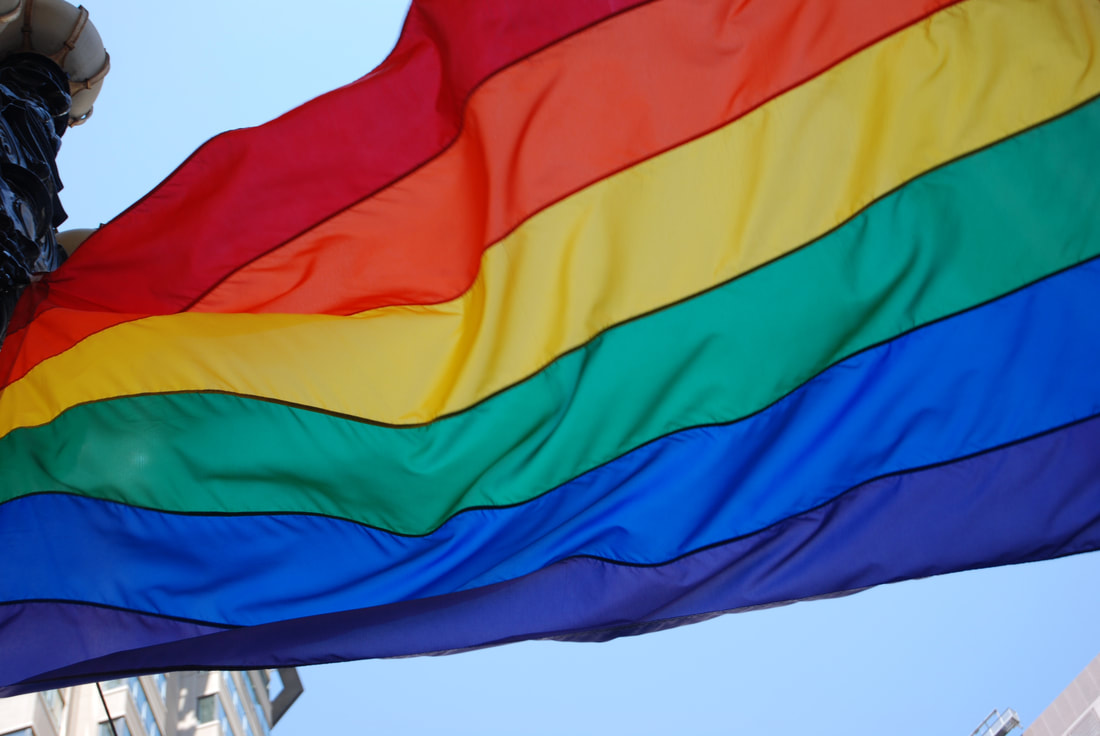
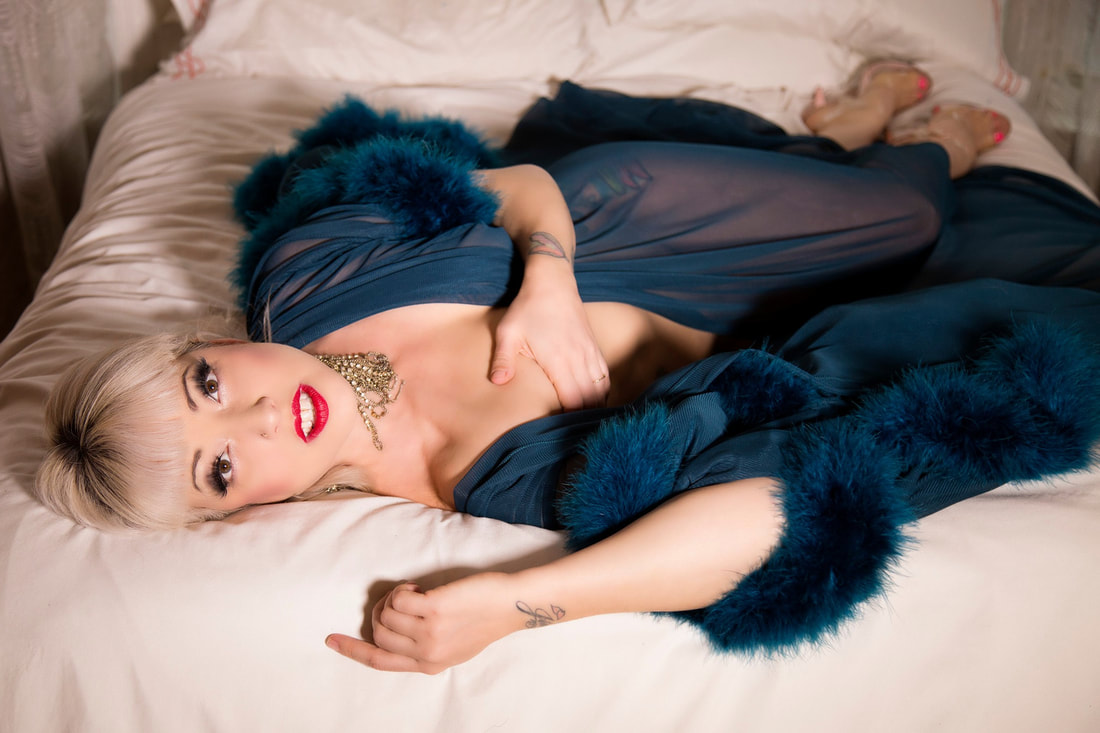
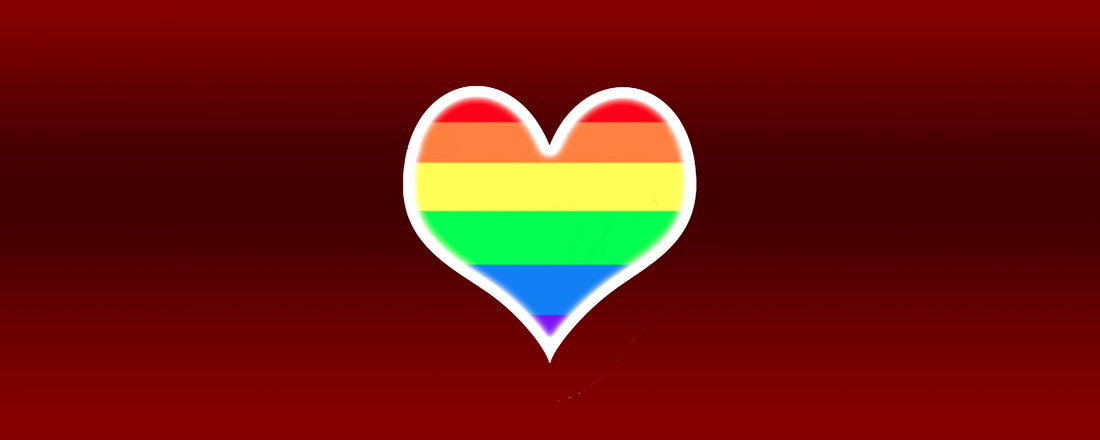

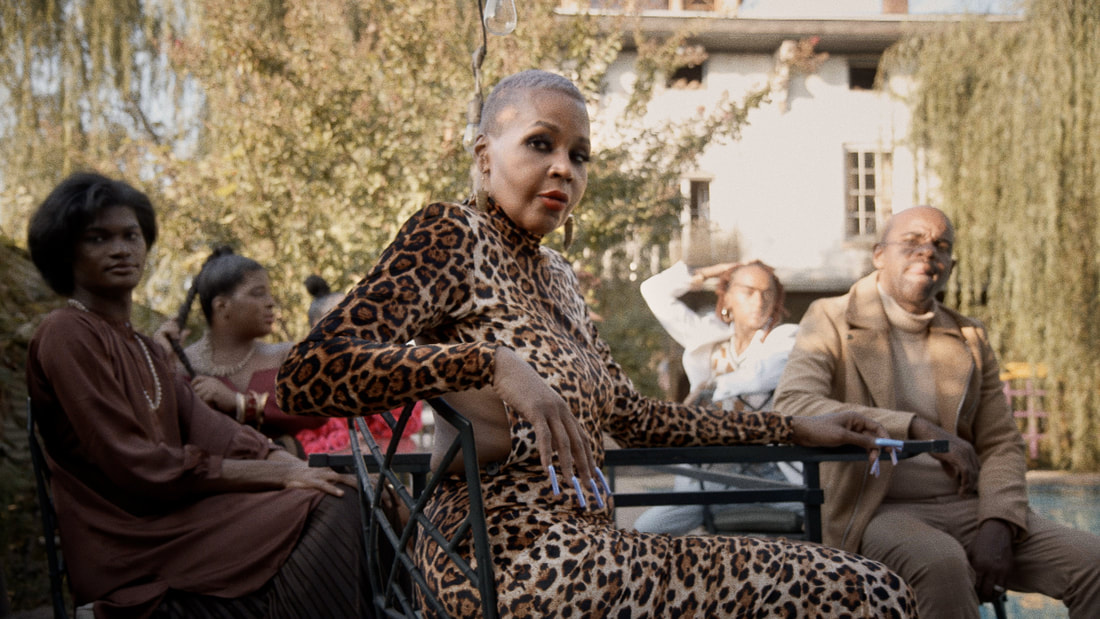
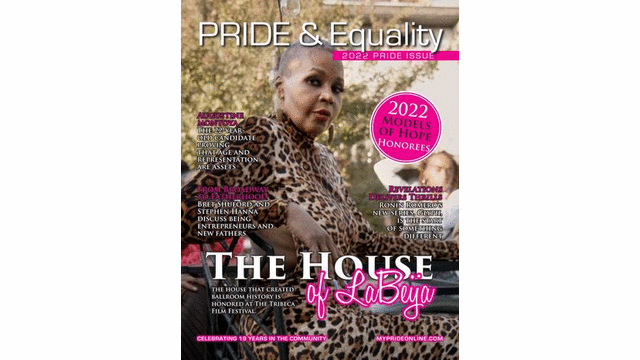
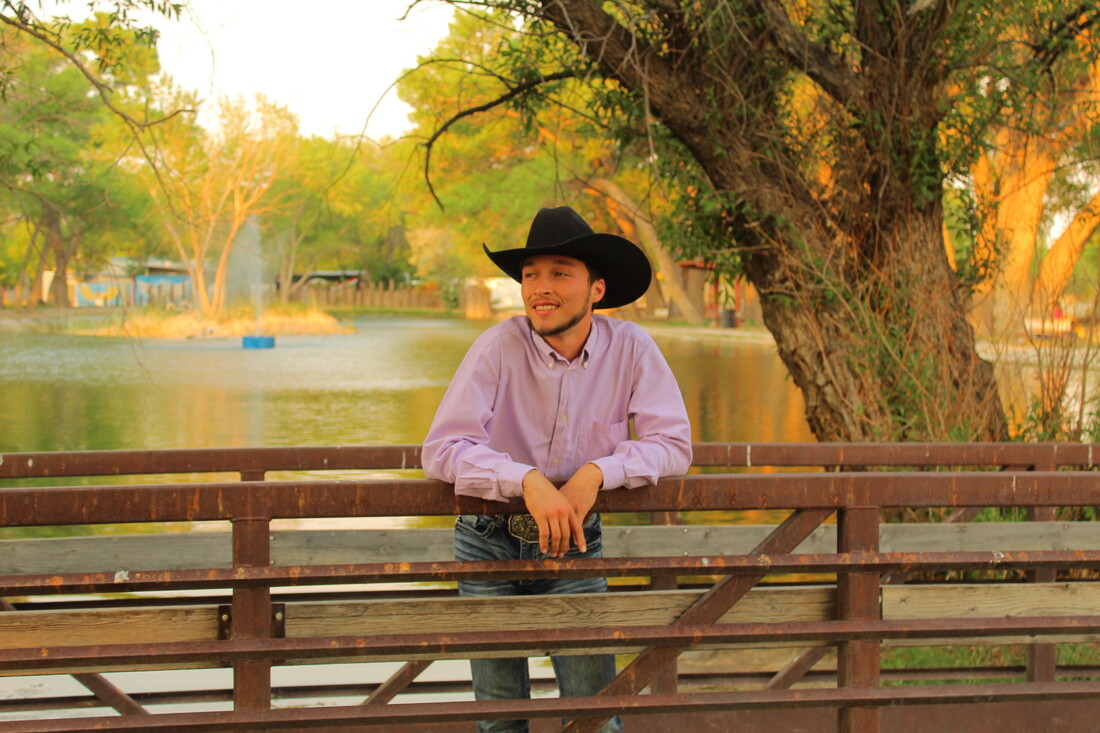
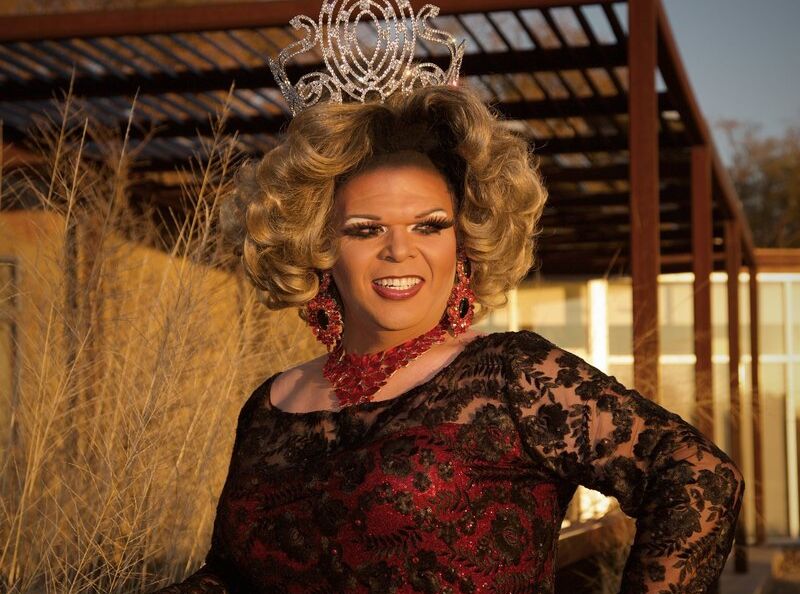
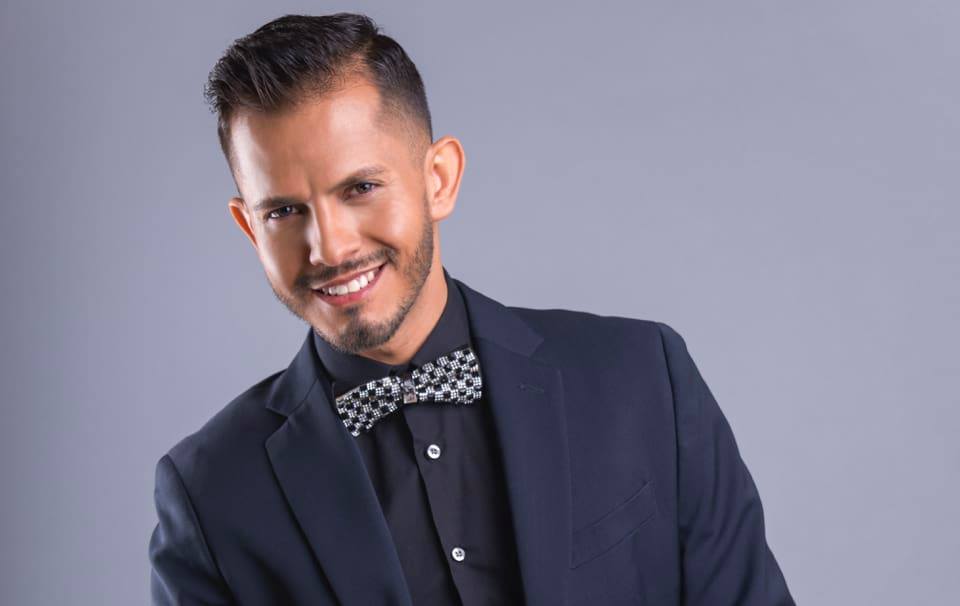
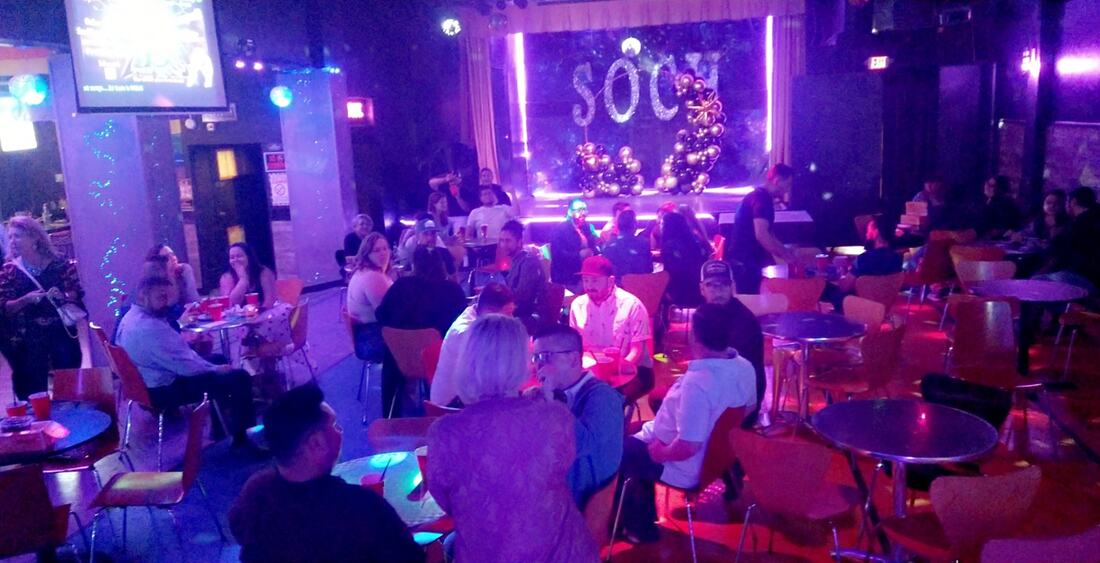
 RSS Feed
RSS Feed
